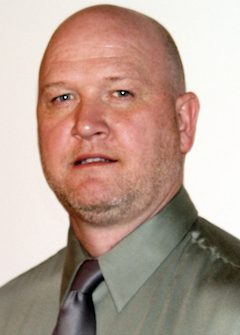EUREKA Academic Editing
We Help Professors & College Students Produce High-Quality Journal Articles, Books, Research Proposals, Dissertations, Theses & More
Does This Guy Look Familiar?

Are You Struggling to Finish Your Journal Article, Book, Research or Grant Proposal, Dissertation, Thesis or Other Writing Project?
If so, consider getting help from Eureka Academic Editing. We have the experience and expertise to help you get your project on track.
The Benefits of Hiring Eureka
- You get our decades of experience and expertise.
- You should be able to finish your writing project faster.
- You should produce a better product.
- You’ll probably save a lot of money by finishing faster. If you’re a college student, for example, you may be able to avoid paying thousands of dollars for additional semesters of school and campus living expenses. In addition, you might earn thousands of dollars if you start a job earlier.
- You may prevent a lot of stress and potential headaches for yourself. And you’ll probably sleep much better.
- You might advance faster in your career by getting a job earlier.
- If you’re a professor, submitting a more polished research proposal or article draft should dramatically improve your chance of getting accepted.
Contact Us Today to Get a Quote on Your Writing and Editing Project. Get on Our Schedule So You Won’t Have to Wait to Get Started.
*** We have experience working with foreign-born students, and some have been able to get reimbursed by their governments for our services.
Tips to Help You Finish Your Writing Project More Quickly
Even before you decide to hire a professional editor to help you finish your writing project, you can do several things on your own to speed up the process and make it easier.
- Before conducting your research, always make sure you know which citation system your professor or publisher wants you to use for your bibliography and/or references. If you use the wrong system, you’ll have to do it over. Lots of wasted time!
- When you decide to use a reference, be sure to accurately write down all of the information that is needed for your bibliography or reference list the first time. Otherwise, you’ll have to find the references again to get the information you failed to get the first time. When assisting writers, I have often seen the time wasted because they had to go back and find their references again to get the author’s name or the page numbers from the original source. Often, the problem is that the writer cited the same author or source more than once and spelled the title of the work or the author’s name differently in various places. “Which spelling is correct?” the professor or publisher may ask. Then, the writer will waste additional time finding out. Write it right the first time, and your work is done.
- Prevent writer’s block by knowing what you want to say and knowing that you don’t have to write it perfectly the first time. If your writer’s block is caused by laziness, meaning that you don’t want to go to the desk and do the work, then you have a major problem. If, on the other hand, your writer’s block is caused by not knowing what you want to say, you can solve this problem in many ways. One way is to simply make a list of the questions you need to answer in your work. Once the questions are in front of you, you just have to decide where to get the answers. Find the answers and write them or type them out. You could even record them and transcribe them later. Once you get all of this information on paper or on your digital screen, no matter how poorly written, you have something to work with, and your writing should move forward. You can’t work with a blank sheet of paper or a blank screen.
- Make an outline, even if it’s informal. Then, simply flesh out the items listed on your outline with more details. Continue to add details until you have several paragraphs or more to go with each section. Then, again, you have something to work with. A large part of completing a project like this is just getting words on your paper or screen.
- Write every day. If you just write a page or two every day, the pages will add up quickly. In three months, you’ll have a draft of 90-180 pages. And, remember, the first draft doesn’t have to be perfect. I wrote six novels this way, often scribbling barely readable notes on paper or typing them into my phone while sitting in my car outside a library. My dedication to writing at least a couple of pages or a certain number of words every day made that possible.
- Break the project into chunks instead of thinking about the whole thing. When you see the full project and dwell on it, it can be intimidating and cause you to freeze. When you break it down into small chunks, it is not so scary. Choose one or two questions to answer today and one or two questions to answer tomorrow. Build your work little by little with consistency.
If You Need More Help, Contact Eureka Today to Get a Quote on Your Writing and Editing Project. Get on Our Schedule Now So You Won’t Have to Wait to Get Started.
*** We have experience working with foreign-born students, and some have been able to get reimbursed by their governments for our services.
Let Eureka Academic Editing do some of the work and take some of the stress out of your life.
You deserve a break.

Frequently Asked Questions
How Will The Process Work?
Step 1: In our first discussion, you will tell us about your project, any special requirements you have to meet, and your deadlines?
Step 2: Once we have this information, we’ll provide you a proposal for an hourly, per-word or project price for our services.
Step 3: You’ll decide how much of the plan you want to implement at this time.
Step 4: We’ll draft a simple agreement so that we each know what is expected, and then we’ll get to work.
Step 5: Depending on the size and type of project, we’ll either submit milestone pieces for you to review as we finish them or simply present the finished product. Then, you’ll be able to let us know if you need additional changes. We’ll make a free revision to anything within the project’s original parameters to ensure your satisfaction.
How Much Will It Cost?
That’s certainly one of the first and most important questions for many potential clients, and we understand. Unfortunately, it’s impossible to answer that question until we know the type and scope of your project.
Depending on your specific case, we may bill by the hour, the word, or the project. We’ll discuss the type of billing with you after we know more about your specific needs.
Keep in mind that projects may require various types of research (interviews, library research, computer research, etc.) and almost always require more than one draft. Moreover, for editing projects, almost everyone’s writing needs more than basic editing and proofreading. Most people’s writing needs to be revised dramatically for structure, clarity and flow. In many cases, entire sentences, paragraphs, sections and chapters may need to be rewritten and moved around. Because there are so many variables in writing and editing, its impossible to give a set price for unknown projects.
In most cases, the starting rate will range from $40-$70 per hour, with the lower rates for students and the higher rates for projects such as grant writing. Then, the rate for any work we do on the project after the first 40 hours will be reduced. We’ll also set a per-word maximum price for most hour-based projects. This means you’ll be billed at the hourly rate or the per-word rate, whichever is lower, so you know that you’ll never be charged more than the word rate but might be charged less if the work is easy to edit and takes less time than expected.
Please note, however, that projects that require a rush or that require the writer or editor to meet with the client to work on the project because of its complexity or major problems will incur additional special fees beyond the maximum. Of course, the client will be informed about any such charges and will need to agree to them before the work is started.
While the price of professional editing might seem high to you, keep in mind that if you are able to finish your project faster with a better outcome, you may be able to finish school, start on other work, or start a new job earlier, which will mean a large net financial benefit for you. Finishing school just a semester earlier will save you much more than the cost of our services, and if you get a job or a better job, you‘ll certainly recoup any of your editing fees quickly. In other words, our editing service is a great investment.
How Long Will It Take?
That’ll depend on the size and complexity of your project. However, it’s in our best interest to do the job quickly rather than waste time, especially if we’re being paid by the word or the project. Rest assured that we’ll strive to get the job done without unnecessary delays.
Note that in many cases, especially if your subject is engineering or science or your work is not easily understandable to the writer or editor, our work schedule will depend on you since you’ll probably need to be present during some of the writing or editing to help us understand what you’re trying to explain. In these cases, we’ll work with you through an online meeting or co-working platform.
Is Your Work Confidential?
Yes. We will be as confidential as you require. If you don’t want us to reveal our work for you, we will not, except as required by law.
More Questions?
Contact us to discuss your project today.
We can then answer any other questions you may have based on the details of your project.
About Us
Eureka Academic Editing was founded by Rick Bowers, a writer, editor, proofreader and communications consultant with more than 30 years’ experience. Rick has worked in a wide variety of writing and managerial roles, including as a manager of communications and public relations, executive editor, proposal writer, grant writer, social media writer, magazine founder, technical editor and ghostwriter.
As a longtime communications professional, he has overseen the production of numerous magazines, newsletters, brochures, annual reports, flyers and marketing materials. He has also helped write and edit journal articles, magazine articles, books, research proposals, dissertations and theses in numerous academic fields. He has the proven ability to work well with others and to produce high-quality products while meeting client deadlines.
Rick’s education and broad experience in communications have given him a rich perspective on the qualities that make any kind of writing effective. His passion is sharing that knowledge and experience with others and helping them achieve their dreams.
Rick earned an MS in communications (journalism/news-editorial) at the University of Tennessee, Knoxville.

What We Write & Edit
- Journal Articles
- Magazine Articles
- Books
- Research Proposals
- Grant Proposals
- Patent Applications
- Theses
- Dissertations
- Admissions Essays
- And More
If you need any kind of writing or editing assistance, we can probably help. Contact us today to discuss your project.

What Our Clients Say
“As an inventor, I have developed several innovative products and companies over the past 15 years, mainly in the areas of wind technology, dialysis and magnetism. EurekaVision has written patent applications, business proposals, grant proposals, e-mails, technical information, abstracts and website pages for us. I continue to contract with EurekaVision whenever I have communications needs. I am currently seeking a grant from the U.S. Department of Energy and have contracted with EurekaVision to assist me. I recommend the company to anyone who needs writing and editing services.”
Dr. Mohammed I.K. Zougari, Clean and Passive Energy Substitutes
“Rick [owner of EurekaVision] is Executive Editor of BAVUAL:The African Heritage Magazine since September 2021, a publication that I founded, own and serve as Editor and Publisher. In that time, I have come to appreciate this very talented man for his professionalism and efficiency. The breadth of experience and wealth of knowledge that he possesses has helped to make BAVUAL a great editorial success. I’m glad to have him aboard. Anyone who utilizes Rick’s services will be extremely fortunate indeed.”
Earl A. Birkett
Get in Touch.
Don’t wait another moment.
Contact us today by phone, text or e-mail to discuss your project. No pressure. No obligation. Let us get started helping you make your dreams a reality.
We’re ready whenever you are.
Your dreams are our business.
Editing@EurekaVision1.com
Phone/Text: 865-684-7438

Maybe It’s Time to Bring in the Professionals

